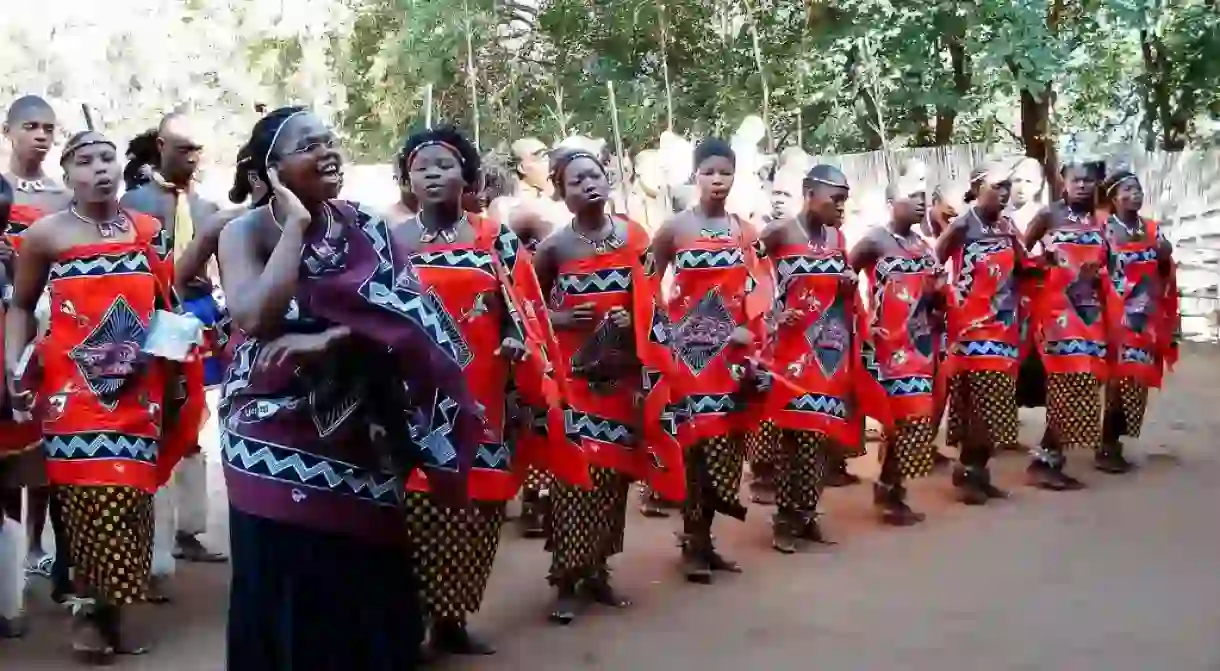21 Essential SiSwati Phrases You'll Need in eSwatini

Visiting eSwatini and want to impress the locals with your lingo? We’ve pulled together a list of essential SiSwati phrases to help you on your way. Now all you need to do is practice your pronunciation – inhlanhla lenhle, you might need it!
Greetings and essentials
SiSwati can be quite a complicated language but, even if you don’t get any further than a simple hello (or, literally “I see you”), the locals will appreciate you trying to make the effort. If you’re saying hello to more than one person, you’ll need to use the plural “sanibonani”.
While this phrase doesn’t have a direct translation in English, it’s very important in the country’s culture. “Sikhulekile ekhaya” is a Swati greeting when arriving at a home and a way of asking for permission to enter.
While many people you come across in eSwatini will be able to speak English, it’s still polite to make an effort and add a “ngiyacela” where you can. The letter “c” in siSwati is a click (like when tutting at someone) so is written here as “tut”.
By now you’re probably getting the message that SiSwati phrases are a little difficult for English speakers to get their head around, but with “sawubona”, “ngiyacela” and “ngiyabonga”, you’ll go far at impressing the locals.
Saying goodbye requires some thought, as the two possible phrases differ depending on whether you’re the one leaving (“sala kahle“) or staying (“hamba kahle“).

The Swati people are incredibly friendly and welcoming, so you might be likely to hear them ask “Unjani?”. You can reply with “Ngikhona”.
Easier than some other SiSwati phrases, a simple “yebo” will come in handy in day-to-day conversations, but “cha” is more difficult for English speakers because of the siSwati “tut” sound used for the letter “c”.
Let’s be honest, this one’s probably going to be the most useful SiSwati phrase you learn (if you can manage to pronounce it – remember the letter “c” is that tut sound).
Directions
You never know when you might get caught short so this is always a useful phrase to have to hand.
Knowing the terms for left and right will help you get from A to B a little more easily when asking directions.
Similarly, stop and go are useful phrases to know while navigating eSwatini.
As you leave to explore the rest of the country, you might hear “Ube neluhambo loluphephile”, which means “Have a safe journey”.

At the restaurant / bar
If you’re starving when you arrive at a restaurant, you can tell the waiter “Ngilambile” (“I’m hungry”) in the hope they might bring your food slightly faster!
Whether you want a refreshing beer (or water!) to wash down your meal, you’re all set if you can remember “Ngicela beer” or “Ngicela emanti”.
It’s always nice to be able to express how much you’re enjoying your food. A simple “Kumnandzi” will help tell the chef you’re happy with the meal.

At the market
eSwatini is home to some great handicraft markets so kick off your haggling with the “market mamas” by asking “Malini?”
Not everywhere accepts credit cards so it’s best to check if you don’t have cash to hand.

Numbers
Making friends
Chatting someone up in the bar and want to tell someone they’re handsome or beautiful? No problem!
Perhaps you’ll have a whirlwind romance in eSwatini and need to declare your love to them.
For everything else
When on safari in eSwatini, you might like to learn some of the local names for the animals you’re looking out for.

So you’ve learned a few SiSwati phrases and you’re hopefully ready to go and try them out during your trip. Inhlanhla lenhle!













